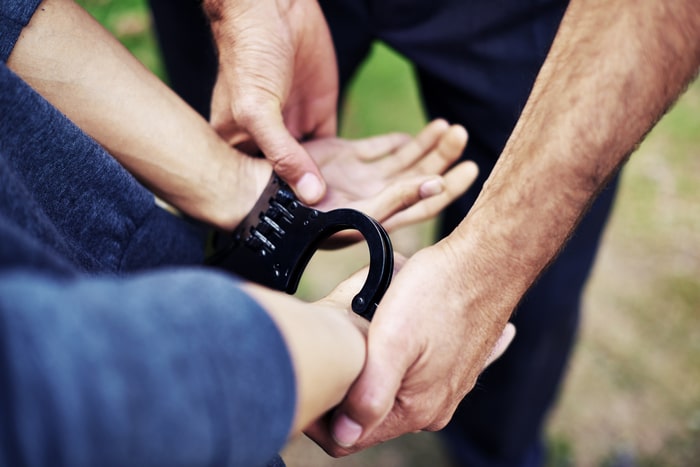
- May 8, 2024
- |security guard company
- | 0
Emergency Response Planning –
Effective emergency response planning is essential for security guard companies to ensure the safety and security of clients, employees, and assets in the event of emergencies or crises. Security guard companies play a crucial role in emergency preparedness, response, and recovery efforts, leveraging their expertise, training, and resources to mitigate risks and minimize the impact of emergencies. In this article, we explore the importance of emergency response planning with security guard companies and highlight key considerations and strategies for developing comprehensive emergency response plans.
Understanding the Importance of Emergency Response Planning
Emergency response planning is a proactive approach to managing and mitigating risks associated with emergencies, such as natural disasters, fires, medical emergencies, and security threats. By developing and implementing comprehensive emergency response plans, security guard companies can effectively prepare for, respond to, and recover from emergencies, minimizing disruptions to operations and safeguarding lives and property. Emergency response planning also enhances organizational resilience, enabling security guard companies to adapt to unexpected events and maintain business continuity in challenging circumstances.
Key Components of Emergency Response Planning
Comprehensive emergency response plans typically include several key components designed to facilitate effective preparedness, response, and recovery efforts. Some essential components of emergency response planning with security guard companies include:
1. Risk Assessment and Hazard Identification: Conducting a thorough risk assessment and hazard identification process enables security guard companies to identify potential threats and vulnerabilities that may impact their operations and clients. This includes assessing risks associated with specific locations, facilities, and assets, as well as evaluating potential hazards such as natural disasters, criminal activity, and public health emergencies.
2. Emergency Procedures and Protocols: Developing clear and concise emergency procedures and protocols ensures that security personnel are equipped with the knowledge and guidance necessary to respond effectively to various emergencies. This includes establishing protocols for evacuations, sheltering in place, lockdowns, medical emergencies, and communication procedures with clients, authorities, and stakeholders.
3. Communication and Coordination: Establishing effective communication channels and coordination mechanisms is essential for facilitating timely and coordinated responses to emergencies. Security guard companies should establish communication protocols for internal communication among security personnel, as well as external communication with clients, emergency responders, and relevant authorities.
4. Training and Education: Providing comprehensive training and education to security personnel is critical for ensuring they are prepared to respond effectively to emergencies. Training programs should cover a range of topics, including emergency response procedures, first aid and CPR, crisis management, and conflict resolution techniques.
5. Resource Management: Managing resources effectively is essential for supporting emergency response efforts and maintaining operational continuity. This includes ensuring adequate staffing levels, access to essential equipment and supplies, and coordination with external resources, such as emergency services and medical personnel.
Developing Comprehensive Emergency Response Plans
Developing comprehensive emergency response plans requires a systematic and collaborative approach involving multiple stakeholders within the security guard company and its client organizations. Some key steps in developing emergency response plans include:
1. Gathering Information: Collecting relevant information about the organization’s operations, facilities, assets, and potential risks is the first step in developing an emergency response plan. This includes conducting site assessments, reviewing existing emergency plans and procedures, and identifying key contacts and resources.
2. Risk Assessment: Conducting a thorough risk assessment helps identify potential hazards and vulnerabilities that may impact the organization. This includes assessing risks associated with natural disasters, security threats, medical emergencies, and other potential emergencies.
3. Developing Response Strategies: Developing response strategies involves identifying appropriate actions and procedures to mitigate risks and respond effectively to emergencies. This includes establishing protocols for evacuations, sheltering in place, lockdowns, medical emergencies, and communication procedures.
4. Training and Education: Providing comprehensive training and education to security personnel and relevant stakeholders is essential for ensuring they are prepared to respond effectively to emergencies. Training programs should cover a range of topics, including emergency response procedures, first aid and CPR, crisis management, and communication protocols.
5. Testing and Evaluation: Testing and evaluating emergency response plans through tabletop exercises, drills, and simulations helps identify strengths, weaknesses, and areas for improvement. This allows security guard companies to refine their plans and procedures based on real-world scenarios and lessons learned.
Emergency response planning is a critical aspect of the role of security guard companies in ensuring the safety and security of clients, employees, and assets. By developing comprehensive emergency response plans that include risk assessment, emergency procedures, communication protocols, training, and testing, security guard companies can effectively prepare for, respond to, and recover from emergencies. Through proactive planning, coordination, and collaboration with clients, authorities, and stakeholders, security guard companies can enhance their ability to mitigate risks and safeguard lives and property in the face of emergencies. Contact us now to learn more.


